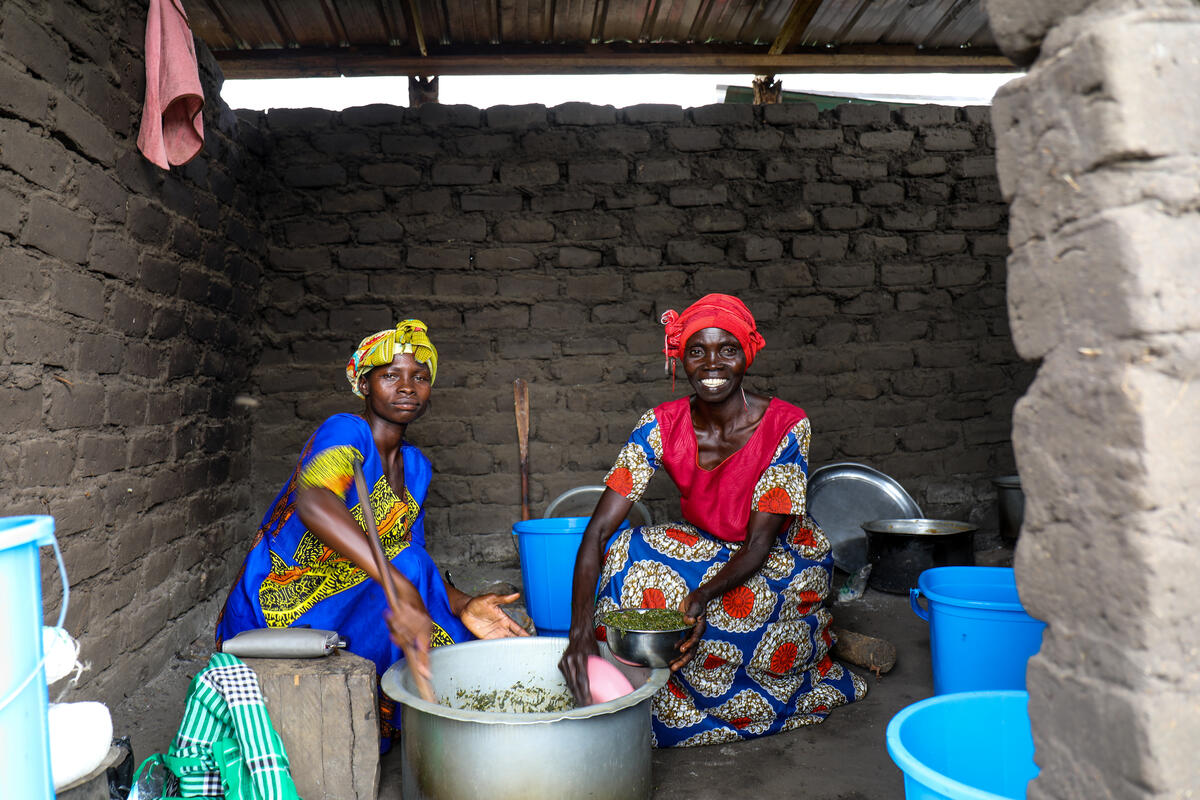UNHCR, FAO farming project keeps hunger at bay for refugees in the Central African Republic
In the aftermath of the 2013 civil war in Darfur, thousands of families had no choice but to flee for their lives. Leaving everything behind, entire families were uprooted from their homes and dispersed to neighbouring countries.
Among them Justin, 42, his wife, Christine and their eight children. They ended up in the Central African Republic after the death of their very young son due to the conflict.
On the way to exile and once they arrived in the city of Obo, located in the far east of CAR, about 1,220 kilometres away from the capital city Bangui, the first challenge was to find decent food.
Living in CAR, one of the world’s least developed countries which is currently facing a major humanitarian crisis of its own, added another layer of uncertainty for Justin and his family. CAR also hosts 3,870 other refugees from South Sudan and the Democratic Republic of Congo. Around a quarter of CAR's population of five million has been forcibly displaced since 2012, with every region of the country currently grappling with acute food insecurity and malnutrition.
"We didn't choose to leave, we first went to take refuge in the bush and our children got sick, but we couldn't go back to our village. So we left everything behind and fled into the CAR," says Justin.
Justin and his family are still living in the Obo refugee camp. The camp’s remote location and lack of livelihood opportunities means providing enough food and other basics is a constant challenge for the refugees living there.
UNHCR, the UN Refugee Agency, and the Food and Agriculture Organization (FAO), teamed up to provide life-saving support to Justin and over 600 families with a plot of farmland and tools to grow their own food.
Since 2018, five years after the first Sudanese refugees arrived in southeastern CAR, FAO and UNHCR have been implementing an agriculture and food support program for South Sudanese and Congolese in Obo refugee camp.
"The field allows my husband and I to feed my family and to vary the food. We also sell the products on the market, to buy sugar or soap."
Every day, Justin and Christine walk a few kilometres to their farm outside the camp to tend their crops and collect produce, which they either use to feed themselves or to provide a vital source of income.
"The field allows my husband and I to feed my family and to vary the food. We also sell the products on the market, to buy sugar or soap," says Christine.
She uses the vegetables she gathers to make the family’s main meal of the day, with a base of boiled squash and cassava leaves.
"If we don't eat healthy foods, then we risk developing cases of malnutrition in the camp, and my family won't have enough strength and energy,” Christine explains.
Roger Pierre Panze is UNHCR’s National Field Officer in Obo, who visits the camp every week to help manage the farms and monitor the families’ progress. He explains that many of the camp’s residents were previously herders and farmers in Southern Sudan, so the farms were an ideal solution to a pressing need.
"By recognizing their agricultural profiles, we have supported them with our UNHCR and FAO project, to enable them to have tools and seeds. And thus, enable them to resume the agriculture they were doing in their country of origin...but now in their country of asylum."
As well as helping families sustain themselves, the project has also enables residents of the camp to contribute to the local economy via the local market.
“I arrived in 2016 and was relocated to Obo. I had limited knowledge in agriculture but the support I received from UNHCR and FAO in 2018, allowed me to sell produce from my farm and buy the equipment to develop my hairdressing business. This helped me to meet my basic needs,” said Dita Edouardo, another Sudanese refugee.
Like Dita, some refugees have also built on the success of their farms and expanded into other areas such as livestock or trade.
“I am not in my country but here I started a new life."
Martin Taban, 49, a South Sudanese refugee who also arrived in Obo in 2016 after fleeing the conflict, invested some of the proceeds of his farm into raising animals which allowed him to increase his income and better feed his family.
"I first planted and worked the land, and then I had enough money to start raising livestock and develop that," said Martin. “I am not in my country but here I started a new life,” he adds.










